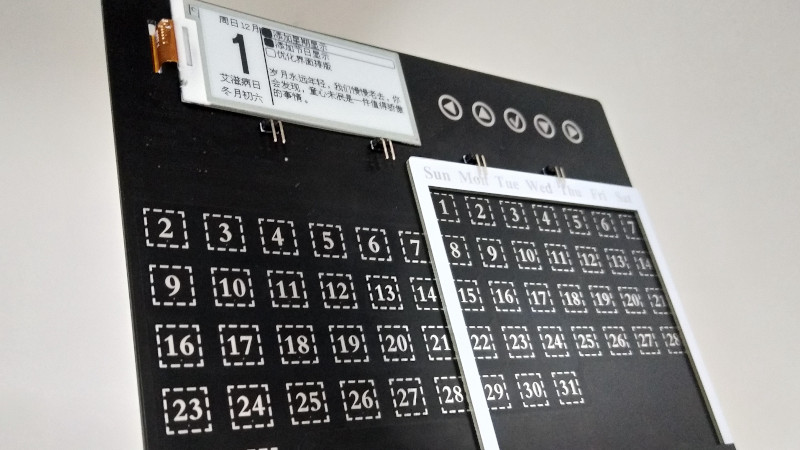With the office computer revolution now many decades old, many of the items that once stood on a typical desk are now part of history. The typewriter, the Rolodex, and the desk calendar have all been subsumed by computers and mobile phones. This electronic desk calendar is perhaps an exception, created as a promotional device for the RT-Thread IoT OS. It features an interesting take on a perpetual calendar, with an array of days spanned by a sliding frame such that any month’s days of the week can be depicted. The days are touch buttons, and can be used to bring up the information on an e-ink display.
Behind it all is a WinnerMicro W600 WiFi-enabled system-on-chip, that runs the aforementioned RT-Thread IoT OS. This OS is a bit of a mystery, according to its Wikipedia page it’s an open-source project from China with ten years of development behind it, but this appears to be the first time we’ve seen it here at Hackaday. Anyone using it?
We like this project though, for its perpetual calendar, and for its re-imagining of a bygone desk accoutrement with an e-ink display to conserve battery. It’s not the first e-ink calendar we’ve seen, this previous one used a Raspberry Pi.
















It reminds me about the foldable device with clock, alarm, timer and calculator which I had. It displayed a calendar of a current or other chosen month. There was a similar layout – number of each day was a single LCD segment, also there was a row of SUN segments indicating Sunday (so user knew that next must be Monday, Tuesday etc.). Unfortunately it doesn’t work after it fell on the floor.
um I googled that micro and the 6th link down is a hackaday article talking about the W600 almost exactly 1 year ago
https://hackaday.com/tag/w600/
They mentioned the W600 chip a year ago, but here they’re talking about the “RT-Thread IoT OS” as a thing they haven’t heard of yet.
What does the w600 article have to do with with “art os”?! Also it is NOT open source.
This “rt os” has NO connection to the article you’re talking about. Are you confused? Maybe rt os supports that chip – they claim to support essentially anything, perfectly.
That sliding frame calendar is a clever idea.
I’ve seen it as a sleeve on ball point pens.
That OS is NOT open source. Or rather it’s “open source” in a secret proprietary language that could mean literally anything.
We’re an opensource project, the code is open on Github https://github.com/RT-Thread/rt-thread